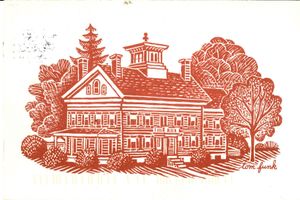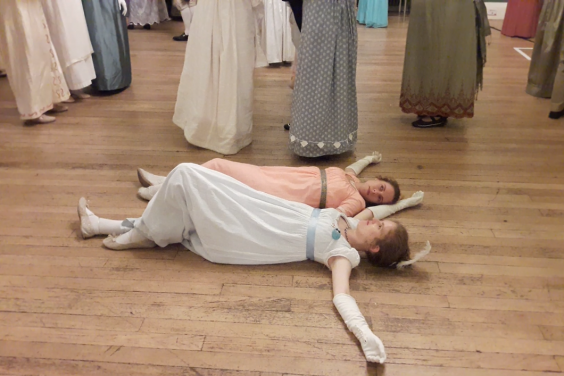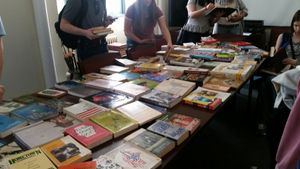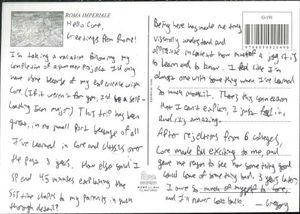Let us ask just one question about Genesis 1-11 in comparison with the Akkadian creation epic: how do human beings appear in these two stories?
To ask this question, we do not need to decide in advance whether the authors of Genesis deliberately produced a counter-narrative that took Enuma Elish as its negative foil orVorlage.There are indications that this was so, but it may be just as well to consider Genesis as having been written by scholars who were aware of the need to produce something like Enuma Elish for thebney ha-golah(the exiles), something that articulated and preserved the values of Judahites and Israelites in a foreign land who were wrestling with the experiences of loss of sovereignty, deportation, displacement, and an uncertain future.
The story about the tower of Babel alone indicates that those authors served a community impressed by, as well as skeptical of, Babylonian achievements. Exposed to a far more populous and powerful civilization, the future Jews found the language to diminish what was before their eyes and put it in its place in ways that still ring profound and true today.
How did they do it? What is it in the language of Genesis 1-11 that achieves these results? These results could not have been achieved had the authors of Genesis been entirely ignorant or completely silent on Babylonian matters. Only by responding in their own idiom to the ancient and well-known Akkadian creation myth and, in the flood story, also to elements of Gilgamesh, were they able to create a story of creation that was to substitute for that of their more powerful Babylonian hosts. In the long term, the creation of Genesis rather than the ancient Akkadian epic served as the touchstone of civilizations that inherited the Bible and disseminated it across the globe.
The ancient myths that prompted the authors of Genesis to write as they did never vanished completely. One might even say that it was Genesis itself, with its subtle allusions to alternate ways of conceiving of the beginning, which prepared the ground for the eventual retrieval of its intertextual other.
Just as we now know, thanks to the archaeological and epigraphic retrieval of Ancient Near Eastern texts and traditions, that Genesis did not appear in splendid isolation but was shaped out of its preconditions and from within particular contexts, we can also observe that Genesis did not act in splendid isolation when it advanced to the status of the foundational story of other communities, even nations and empires, who read those ancient Israelite and Judahite texts in new situations and with new eyes, for they also read these texts with their old eyes.
It seems to me that these later readers of Genesis, themselves steeped in Babylonian, Egyptian, Syriac, Greek, and Roman traditions approached the text from contexts and with connotations that resembled those represented in Enuma Elish. They did not object, on principle, to the notion that the world was full of gods, as the Stoics taught, or that worlds came and went and were prone to destruction and regeneration. Theirs was a much more colorful universe than what we might imagine if we approach the Bible with the mental asceticism and puritan austerity of Calvinists. The ancient readers were hardly iconoclasts. Theirs was a world of divine beings, messengers, powers ruling the air, and a Supreme Being ruling all. That Supreme Being, the God hidden to the eyes of men, was not residing in splendid isolation but surrounded by a court and happy in that he had a son created in his likeness who was obedient to the point of sacrificing his own happiness to please his father. In other words, theirs was the world of Enuma Elish, or one very much like it.
So let us ask ourselves that one question. What is the role of the human being in Enuma Elish and what is the role of the human being in Genesis 1-11?
When it comes to the answer to this question, the difference between these texts could not be more pronounced. That difference would be meaningless if the texts could not be compared, if these texts had no relation to one another, if there was no intertextuality that linked them just enough to see where they align and where they depart from one another.
To answer briefly, while in Enuma Elish the creation of human beings is an afterthought and their purpose is to serve as an accouterment to the lifestyle of the gods, the creation of Genesis puts human beings in the place of the gods. It is not by accident when the Psalmist muses, You made him only slightly less than God (Psalm 8:5).
Genesis 1 barely conceals the existence of the divine retinue, of lesser gods and angels, but it reduces them to spectators and a silent chorus. (See Gen 1:26) Only later, in rabbinic midrash are the spectators and silent chorus given words that are unabashedly[1]assumed to have been spoken before the creation of the human being.[2]Like the Christians, the Jews of late antiquity imagined God as part of apleroma, a fullness rather than an emptiness.
So the difference of Genesis is not that there are no lesser gods or divine beings but that it is almost completely silent about them. This includes a barely acknowledged silence, a may-he-who-has-ears-to-hear-get-the-hint of something barely remembered, or rather well remembered but now barely alluded to, namely, the great combat myth that was indelibly linked with the reputation of Marduk, god of cities, that is meant to be ignored, though not entirely forgotten. This, too, later readers remembered well. Not only those mindful of the vanquished saltwater chaos dragon, that monstrous goddess Tiamat slain in the beginning to save the gods and from whose carcass the habitable world was created, but others, too, who believed that YHWH Elohim slew Rahab and captured the Leviathan whose flesh will be the feast of the righteous at the end of days. (Rahab: see Job 9:13 and Job 26:12, Ps 89:10, Isa 59:9; Leviathan: see Job 3:8, 41:1.12, Psalm 74:14, 104:26, Isa 27:1) These lively images of primordial threat to existence contained by heroic divine intervention returned in stories about the battles of Christ and the saints against Satan and his lot.
Again, the creation of Genesis contains all this but barely hints to it. Instead it trains its spotlight on the human being. All other questions are rendered irrelevant: where was Gods wind before it hovered over the deep/tehom? Why and for what purpose did he fashion what he spoke into being? Why, in his majestic cohortative soliloquy, does He create human beings in our likeness? Did not Ea fashion Marduk after his likeness? Isnt Christ the true likeness of God, the one who is even called by his name, a veritable son of the sun or, as in the Orthodox creed, light from light?
In Genesis, sonship or slightly-lesser-than-Godship, is conferred on human beings. In Enuma Elish, on the other hand, humans are created from the blood of Kingu, an evil figure, and hence their eternal enslavement to the gods is more than skin-deep. It is a condition that cannot be shed. It is their fate to serve the gods.
The story that the Babylonians read and reenact every fall during the season of the New Year is about divine kingship, the kingship of Marduk and the kingship and priesthood of few, their right to rule over the many: humans are meant to feed the gods. Without the gods and their protection, diligently mediated by the priest-king, they had nothing to eat themselves. The eternal merit of the gods rests on their providing the conditions of life, while life remains under the fragile protection of the gods. Stop feeding the gods and see what happens. Change their rites and you will fail. Disturb their temples and deprive them of their proper sacrifices and you will perish.
It is no accident that Babylonian Jewry, and Jews ever since, recall creation and divine kingship in the fall, the season when the world was created. Like the Babylonian New Year, Jewish festivities are drawn out from the first of the month of Tishrey (the names of the Jewish months are Babylonian) to the tenth of the month, the solemn day of atonement, followed by eight days of seasonal festivities recalling the Israelites sojourn in the desert. While there is no overt reference to Babylonian religion, the manner in which Jews recall creation and associate it with divine enthronement echoes the sequence of events in Enuma Elish. Creation and divine enthronement are meaningfully associated only if creation involves an assertion of supreme power over non-creation, chaos, perdition. As in Enuma Elish, though not so obviously in Genesis. Not if one reads it with the diminished range of overtones that were still audible to those in whose ears rang those other tunes.
[1]This despite the well-known prohibition to inquire into what occurred before creation. See GenR 1:1: IT is forbidden to inquire what existed before creation, as Moses distinctly tells us (Deut. 4. 32): Ask now of the days that are past which were before thee, since the day God created man upon earth. Thus the scope of inquiry is limited to the timesincethe Creation (Source: http://www.sacred-texts.com/jud/tmm/tmm07.htm).
[2]There istextualspeculation about the creation of the angels in Genesis Rabba. See e.g. GenR 1:2-3: When were the angels created? R. Johanan said: They were created on the second day, as it is written, Who layest the beams of Thine upper chambers in the waters (Ps. Civ, 3), followed by, Who makest the spirits Thine angels {ib. 4). 1 R. Hanina said: They were created on the fifth day, for it is written, And let fowl fly above the earth (Gen. 1, 20), 2 and it is written, And with twain he did fly (Isa. vi, 2). 3 R. Luliani b. Tabri 4 said in R. Isaacs name: W T hether we accept the view of R. Hanina or that of R. Johanan, all agree that none were created on the first day, lest you should say, Michael stretched [the world] in the south and Gabriel in the north, while the Holy One, blessed be He, measured it in the middle ; but I am the Lord, that maketh all things ; that stretched forth the heavens alone; that spread abroad the earth by Myself me-itti (ib. xliv, 24) : mi itti (who was with Me) is written : who was associated with Me in the creation of the world ? Ordinarily, a mortal king is honoured in his realm and the great men of the realm are honoured with him. Wherefore ? Because they bear the burden [of state] with him. (Source: https://archive.org/stream/RabbaGenesis/midrashrabbahgen027557mbp_djvu.txt).













